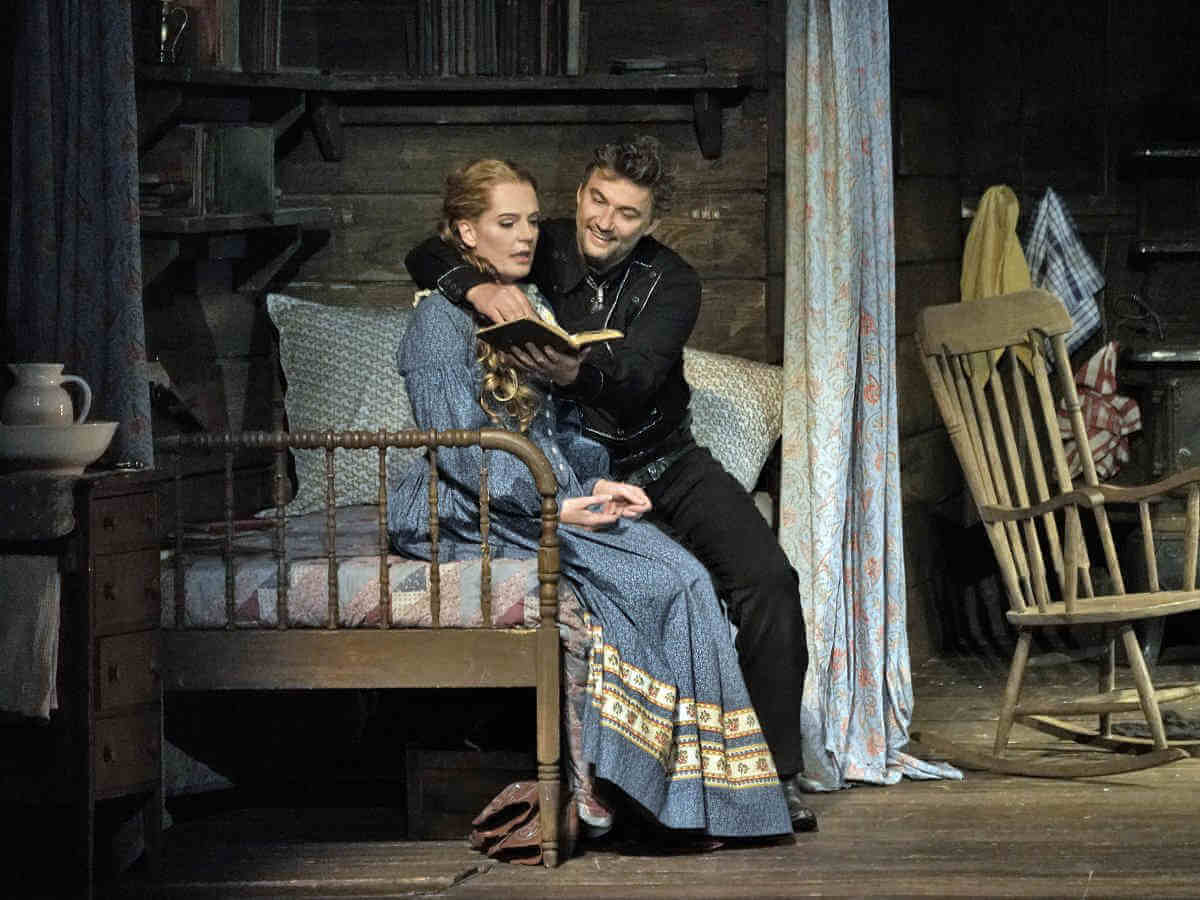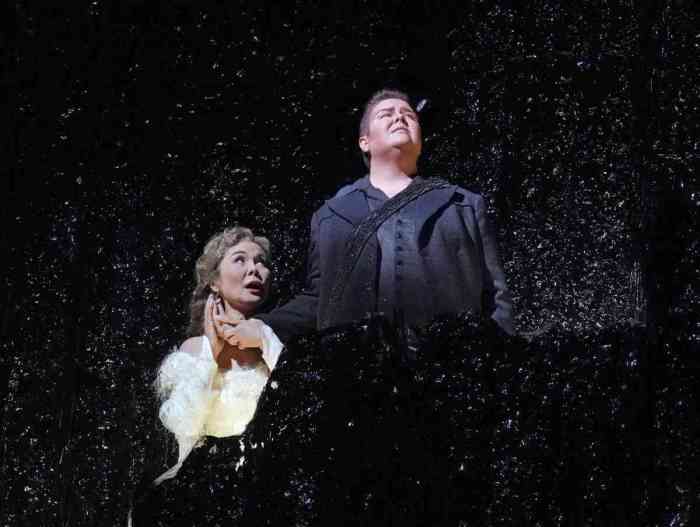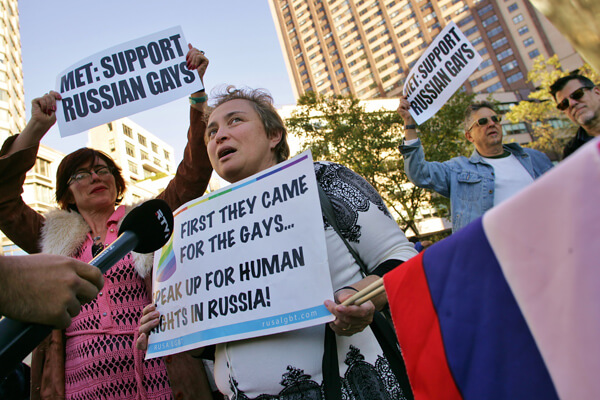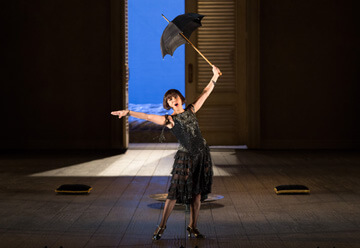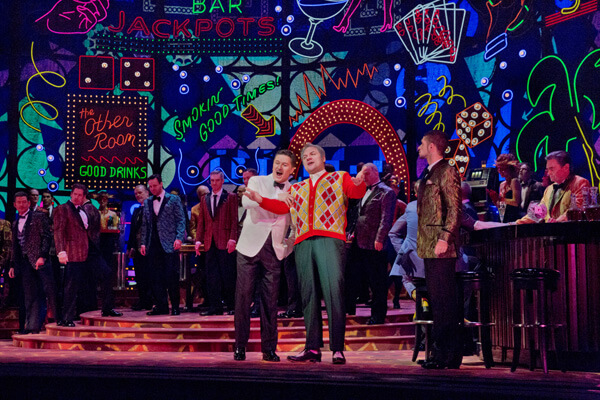Real expectation filled the Met auditorium October 17 as we awaited the return of matinee idol tenor Jonas Kaufmann to the company after four cancelation-filled years. Munich’s star tenor joined the run of “La Fanciulla del West” midway in the role created by Enrico Caruso at Puccini’s Gold Rush-set opera’s world premiere in 1910. It was salutary to have him back, charisma and artistry much in evidence. But Dick Johnson is not “his” part vocally, certainly not in a theater the Met’s size. He’s excelled in “Tosca” here and “Don Carlo” elsewhere, but in this role he sounded rather too baritonal and, except at a few moments, slightly small-scale.
The character was beautifully traced, and he and the visually ideal Minnie of Eva-Maria Westbroek exuded real chemistry, so there was much to enjoy (beyond Puccini’s score, maybe his finest achievement). If Westbroek had secure notes above an A she’d be ideal, as she has the needed vocal warmth and style. But her Bs and Cs only occasionally told as more than pitched yells — a frustrating if endearing showing. Seen from the auditorium, Zeljko Lucic’s Jack Rance (the third point in the opera’s triangle) seemed rather casual dramatically, but if too soft-grained his baritone avoided its usual pitch issues and sounded healthy.
Marco Armiliato seems to have lost the ability to invigorate complex scores: the orchestral playing was — as almost always at the Met — of high quality. But Puccini’s wonderful rhythmic effects (like the ostinato underlying the poker game) went for little and in general the show felt underarticulated musically. The high points were definitely the interaction of Kaufmann and Westbroek in Act Two, plus his surefire Act Three aria. Westbroek seemed tired by the third act’s wonderful scene of Minnie pleading for Johnson’s life, so that ensemble was notable mainly for baritone Michael Todd Simpson in Sonora’s stirring endorsement of forgiveness.
Oren Gradus made a big, blotty bass noise. More than that — in artistry and feeling as well as dynamic control — is needed to put over the wonderful episode involving Jake Wallace, the camp minstrel, making everyone homesick. Several other year in/ year out comprimario management favorites gave acceptable but hardly outstanding performances. Two veterans sounded very healthy: Richard Bernstein (Bello) and MaryAnn McCormick (Wowkle). In the key role of Nick the Bartender (sometimes played as Minnie’s gay best friend), the company had a real asset in Carlo Bosi — clear, very well-projected tone and words and intelligent stage work. American bass-baritone James Creswell made a fine debut in a one-night appearance as Ashby, the Wells Fargo agent. His instrument has presence and quality and he fit well into the ensemble. Lanky and handsome enough for a movie cowboy, Simpson made a compelling Sonora. The fighting looked convincing due to the mastery of consultant B. H. Barry, with whom I was lucky to work decades ago as a college student actor.
I have no doubt that some of the issues here will be ironed out for the October 27 HD showing. The third act’s awkward, nature-free set will matter less, and certainly Kaufmann and Westbroek’s chemistry and detailed characterizations will emerge well via camerawork. “Fanciulla” merits hearing.
Over the years I’ve become perversely fond of the Met’s grandiose, retrograde “Aida” staging by Sonja Frisell, with its mammoth sets (Gianni Quaranta) and Classic Comics costumes (Dada Saligeri). This is apparently its final season and — having seen the first cast on HD — I went along October 18 to see replacements in the soprano and tenor leads.
Always scheduled for two “Aidas,” Tamara Wilson — who debuted at the Met in this part in 2014 — doesn’t boast the vocal or physical charisma of Anna Netrebko (who does?), but she sang the taxing title role with remarkably beauty of sound and a consistency of pitch that eluded Netrebko at several key junctures. If conscientious rather than riveting as a stage figure, Wilson indulged in less diva plastique than her more fiery colleague and was throughout sincere and sympathetic. I’ve heard Wilson ace Elisabeth de Valois (Houston) and Elettra (Ravinia) and hope we hear her locally in wider repertory.
Latvian tenor Aleksandrs Antonenko, who initially served the Met well in “Rusalka”, “Boris Godunov,” and “Il tabarro,” has sounded increasingly under strain. His HD showing as Radames — though better than earlier broadcast performances — was pretty unbearable vocally and basically a blunt, immobile object.
When Antonenko was adjudged “ill,” Yonghoon Lee, a reliable international singer with what might be called a “Grade B” voice, made a distinct improvement. Vocal distinction is not on the menu, and Lee has beefed up his tenor at the expense of lyricism, but still manages some effective quiet singing. He showed the metal to be heard in big ensembles. While not an interactive actor, Lee looks good and moves convincingly onstage, making Radames a plausible love object for the two rival princesses. This was a trade-off worth making.
As at the HD showing, the show was stolen by the superb, nuanced Amneris, Georgian powerhouse Anita Rachvelishvili, who dared to follow Verdi’s dynamic markings, thus giving the part a subtler profile, with much silken, quiet singing — but also hauled out the cannons on chorus-stomping high B flats. I’ve seen many excellent Amnerises, going back to Mignon Dunn and Fiorenza Cossotto; Rachvelishvili stands up there with the best.
Also pretty wonderful was Quinn Kelsey (Amonasro), singing beautifully and with urgency. In the line of great American baritones, he lacked only a certain tonal grandeur in the most heavily orchestrated parts of his fierce colloquy with Aida. Dmitry Belosselskiy lacks puissant low notes but was otherwise a sound Ramfis, with Ryan Speedo Green an honorable King. Gabriella Reyes, in the offstage music of the Sacerdotessa, sounded vibrant and thrilling, and there was promising bright Slavic tenor metal in Arseny Yakovlev‘s Messaggero.
If you’ve never seen the production — or never seen a Met opera — think about going in January, when the competent Nicola Luisotti helms four performances with Sondra Radvanovsky, Dolora Zajick, and Lee (best not in April, when justly famed singer Plácido Domingo will be indulged to stand in the pit for two more shows). It packs a punch, and for better and worse, we won’t see its like again.
David Shengold (shengold@yahoo.com) writes about opera for many venues.


